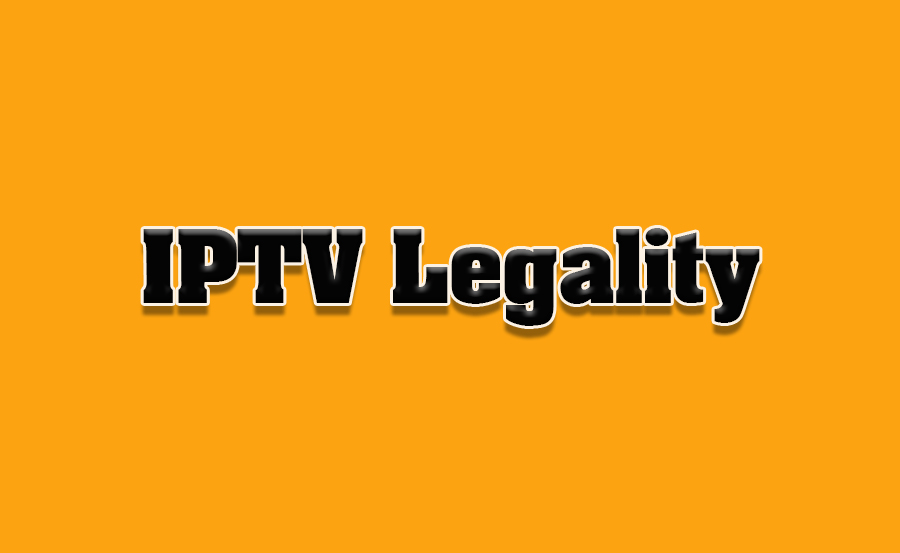As IPTV services continue to expand, questions surrounding their legality have become more common. Understanding the legality of IPTV is crucial for both providers and users, as it ensures compliance with broadcasting laws and avoids potential legal repercussions. In this article, we’ll explore the complexities of IPTV legality, factors that determine whether a service is legitimate, and tips for identifying reliable IPTV providers.
Buy 1 Year IPTV and Enjoy Unlimited Content
1. Understanding IPTV and Its Legal Foundation
IPTV, or Internet Protocol Television, is a system that delivers television content over the internet rather than through traditional broadcast or cable networks. While the technology itself is legal, the legality of individual IPTV services depends on how they source and distribute their content. Legitimate IPTV services obtain proper licensing agreements for the channels they offer, allowing them to legally broadcast content from authorized sources.
2. Key Factors Determining IPTV Legality
The legality of an IPTV service is determined by several factors:
- Licensing Agreements: For an IPTV service to be legal, it must have licensing agreements with content providers or networks. These agreements grant them the rights to distribute content, much like cable companies.
- Content Ownership: Some IPTV services stream content without authorization, which is illegal and constitutes copyright infringement. Legitimate IPTV providers pay licensing fees to broadcast channels and programs, ensuring they adhere to copyright laws.
- Broadcasting Rights: IPTV providers must secure broadcasting rights in the regions they serve. For example, obtaining rights to stream sports events, movies, or series requires formal agreements with content owners. By meeting these legal requirements, IPTV providers can offer content lawfully, distinguishing themselves from unlicensed services that may face shutdowns or legal consequences.
3. Common Misconceptions About IPTV Legality
There are several misconceptions about IPTV legality that can create confusion among users:
- All IPTV Services Are Illegal: This is a myth. Many IPTV services operate legally with proper licensing, similar to popular streaming platforms like Netflix or Hulu. The legality depends on whether the service has obtained the necessary rights for content distribution.
- Using IPTV Requires a VPN to Stay Legal: While using a VPN can enhance privacy and bypass geo-restrictions, it doesn’t make an illegal IPTV service legal. VPNs hide your IP address, but they do not affect the legality of the service itself.
- If It’s Paid, It Must Be Legal: Not all paid IPTV services are legal. Some providers charge for access to unlicensed content. Verifying the legality of a service before subscribing is essential to avoid contributing to copyright infringement.
4. How to Identify Legal IPTV Services
Choosing a legal IPTV service requires some research to ensure it complies with licensing requirements. Here are tips for identifying legitimate services:
- Check for Licensing Information: Reputable IPTV providers will often display licensing information on their website or disclose their official partnerships with networks or studios. If this information is not available, proceed with caution.
- Read User Reviews and Feedback: Check for reviews and feedback from other users regarding the service. Established, legitimate services typically have positive feedback and established reputations, while illegal providers may have numerous complaints or reports of shutdowns.
- Look for Recognized Payment Methods: Most legal IPTV services offer secure and widely recognized payment methods, such as credit cards or payment processors. Avoid services that request unconventional payment methods like cryptocurrency, as this can be a red flag for illegitimacy.
- Research the Provider’s History: Legal IPTV providers often have a track record of stable service and transparent practices. Be cautious with providers that frequently change domains, rebrand, or experience frequent shutdowns, as these may be signs of a non-legitimate operation.
5. Consequences of Using Illegal IPTV Services
Using illegal IPTV services can have serious consequences, including:
- Service Disruptions: Unauthorized IPTV services are often subject to shutdowns by legal authorities, meaning users may lose access without warning.
- Legal Liability: While enforcement varies by region, some users of illegal IPTV services have faced fines or legal actions, especially in countries with strict copyright laws.How NZBGet Enhances Your IPTV Experience: The Ultimate Integration
- Security Risks: Unlicensed IPTV services may pose security risks, as they often lack secure servers or proper encryption. This can expose users to data theft, malware, or other online threats. Legal IPTV services, on the other hand, offer secure and stable access, allowing users to enjoy content without the risk of disruptions or legal consequences.
6. The Role of Authorities in Regulating IPTV
Governments and copyright authorities worldwide are increasing their efforts to regulate IPTV and combat piracy. Countries such as the UK, the US, and many in the EU have strict copyright laws, leading to increased enforcement against illegal IPTV providers. For example, many unauthorized services have been shut down, and some users have faced penalties. As regulation tightens, legal IPTV services are becoming more prominent, while illegal providers are under constant scrutiny.
7. Legally Enjoying IPTV Content
To enjoy IPTV content legally, select services that explicitly adhere to licensing and broadcasting regulations. Many IPTV providers, such as Hulu, Sling TV, and YouTube TV, operate within the law, providing a secure and legal way to stream content. By choosing licensed services, you not only ensure a better viewing experience but also contribute to a fair media industry that compensates content creators and broadcasters appropriately.
Conclusion
The legality of IPTV services depends on proper licensing and content rights. By choosing a licensed IPTV provider, you can enjoy a reliable, secure, and uninterrupted viewing experience without legal concerns. Understanding these distinctions helps ensure you make informed decisions, avoiding the risks associated with unlicensed services and supporting legitimate content distribution.
How to Install and Configure Lazy IPTV for Smooth Streaming





